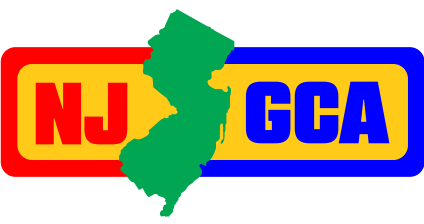Lottery tickets are a key component of a successful convenience store. In the state of New Jersey nearly 6,500 businesses serve as Lottery retailers. Retailers earn five percent of their lottery ticket sales in the form of commissions. In fiscal year 2012, the Lottery returned approximately $153 million in commissions to support convenience stores and other small businesses throughout the state.
Currently, in order to purchase lottery tickets, consumers must visit an authorized NJ Lottery vendor to make their purchase. Lottery tickets are a cornerstone of small businesses. Lottery ticket sales are a tool to increase foot-traffic and attract customers to purchase higher margin items. Retailers know that the value of lottery ticket doesn’t come from the few cents they earn on the sale of the ticket; it comes from the dollar they earn when that customer also buys a cup of coffee or a bag of chips.
Internet Lottery
It has been proposed that the state should permit the sale of lottery tickets over the internet. This proposal would give customers an incentive to avoid patronizing their local retailers who use ticket sales as a tool to increase foot-traffic and attract customers to purchase higher margin items. It would also be overbearing for the State of New Jersey to compete directly with thousands of small businesses that are already fighting to keep their doors open, particularly during such a poor economy. NJGCA strongly opposes any effort to begin selling lottery tickets online.
Lottery “Privatization”
In 2012, rumors began circulating that Governor Christie was interested in privatizing the state lottery as a way of generating more money for the state. The Administration was thinking that bringing in a private company, operating with a profit motive, would generate more revenue and reduce costs to the state.
Legislative Leadership was skeptical, and created a bill (S-2422/A-3614) to require that a privatization of the lottery be specifically approved by the Governor. It was eventually revealed that the Governor’s Administration only planned to privatize the marketing of the lottery, and therefore wouldn’t have been subject to this bill even if it had become law.
NJGCA supported this bill because of our staunch opposition to internet lottery. We feared that if it were left entirely up to a private company, they may turn to internet lottery as a way to raise money, at the expense of sales at retailers who depend on lottery tickets to increase foot traffic. While NJGCA would be one of the first to talk about the benefits of privatization in general, this bill would have been useful in providing an extra check to ensure that a theoretical privatization of the lottery would have been in the best interest of small businesses.
The privatization of the marketing of the lottery looks likely to provide real benefits to lottery retailers.
The contractor, Northstar, will not have the ability to change retailers’ commission rates or institute new fees on retailers. It also means they will not be able to institute internet lottery on their own. This satisfies the main concerns NJGCA had regarding this deal.
A private company, unlike the government, needs to make a profit to survive, which should mean they will be much more invested in growing lottery tickets sales than the government was.
There are a few specific changes Northstar intends to make. For one, lottery retailers will now be permitted to return partial packs of scratch off tickets. Previously the Lottery didn’t have the manpower or the cash to invest in an extra line at the warehouse to scan partial packs, so if you opened a pack of 300 and only sold 1 ticket you had to eat the remaining 299 tickets. Now Northstar has agreed to invest in the ability to count partial packs.
The current sales force of the Lottery is less than 50, and Northstar will be increasing that to 90, which will mean better and quicker relations between you and the Lottery. They also intend to roll out better accounting tools for retailers and better marketing to expand the pool of lottery players.
Click on the next page to view legislation regarding this issue
